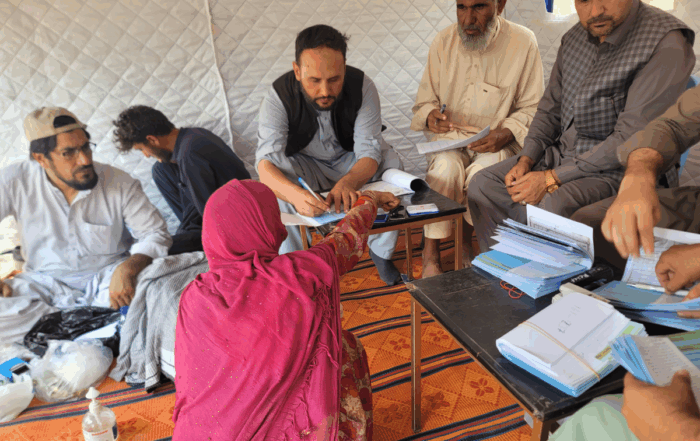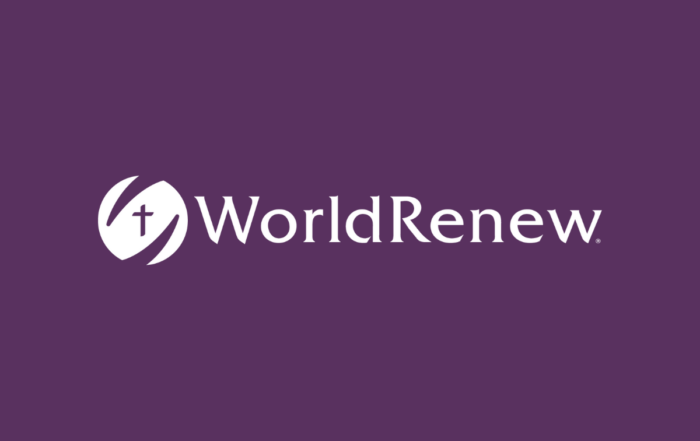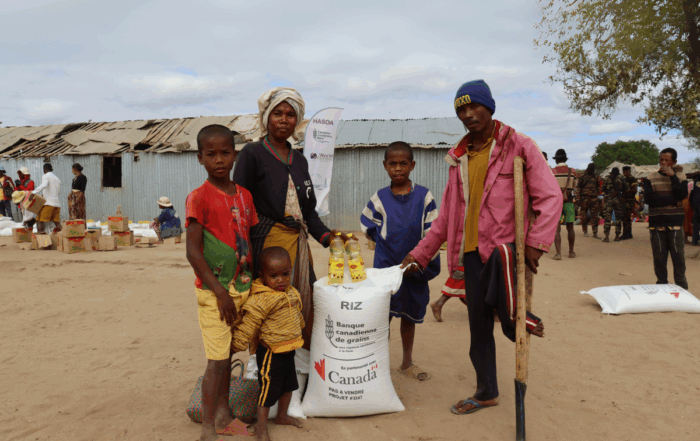Every photo tells a story
February 21, 2024
every photo tells a story
February 21, 2024
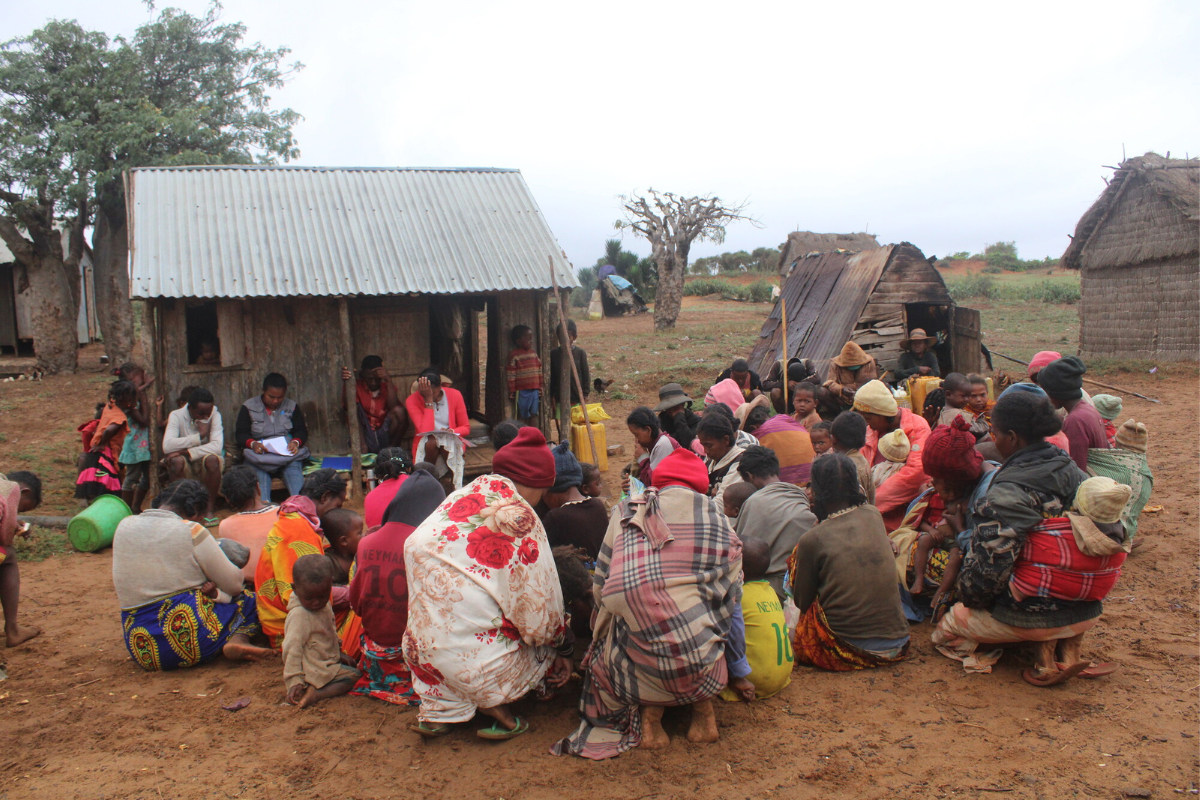
Harry and Annie Bergshoeff are International Relief Managers with World Renew. They recently spent time in Ambovombe, Madagascar, to help manage a food distribution project involving 2,000 of the most vulnerable households in 31 different communities. It aimed to provide each family a monthly ration of 60 kg of rice, 10 kg of beans, and 4 litres of oil for a period of 5 months to bridge the gap to their next harvest. Harry and Annie have contributed the following photos and captions to share the story of the work being done by World Renew with Canadian Foodgrains Bank and our local partner on the ground.
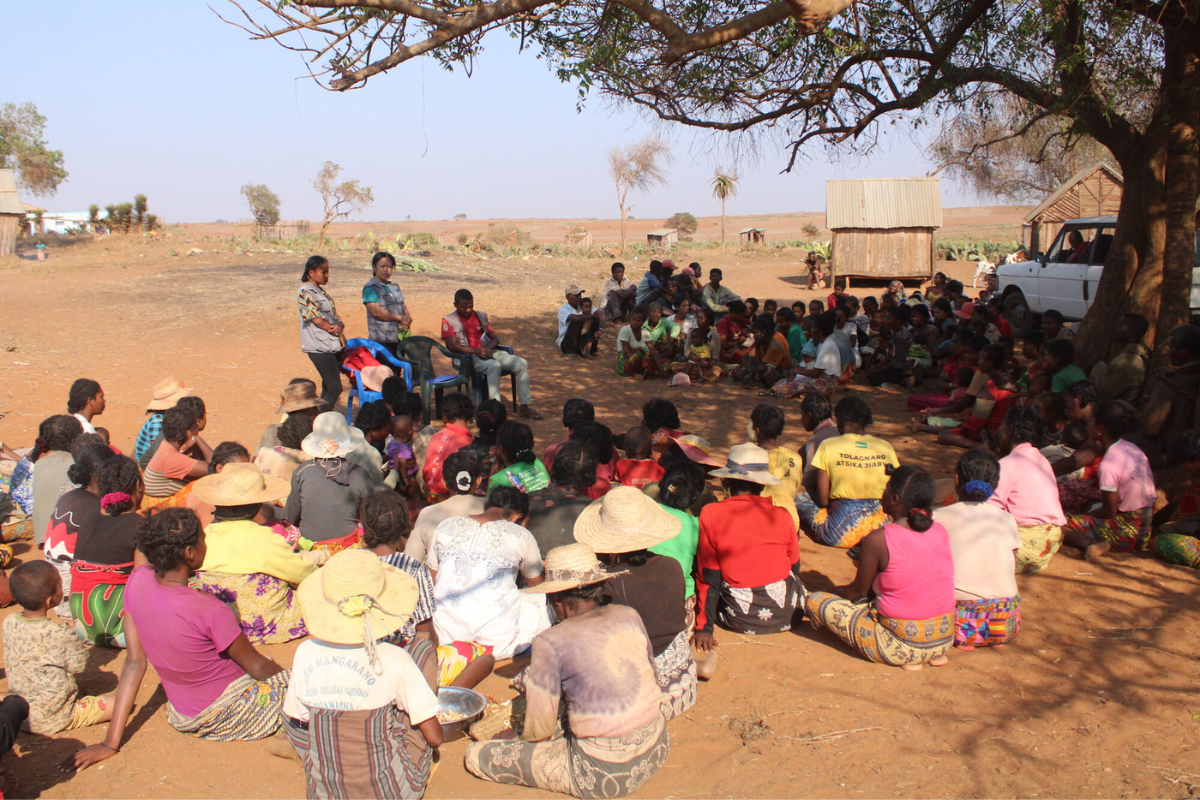
The project started with partner staff visiting each of the villages to share the details of the project and how the participant families would be selected.
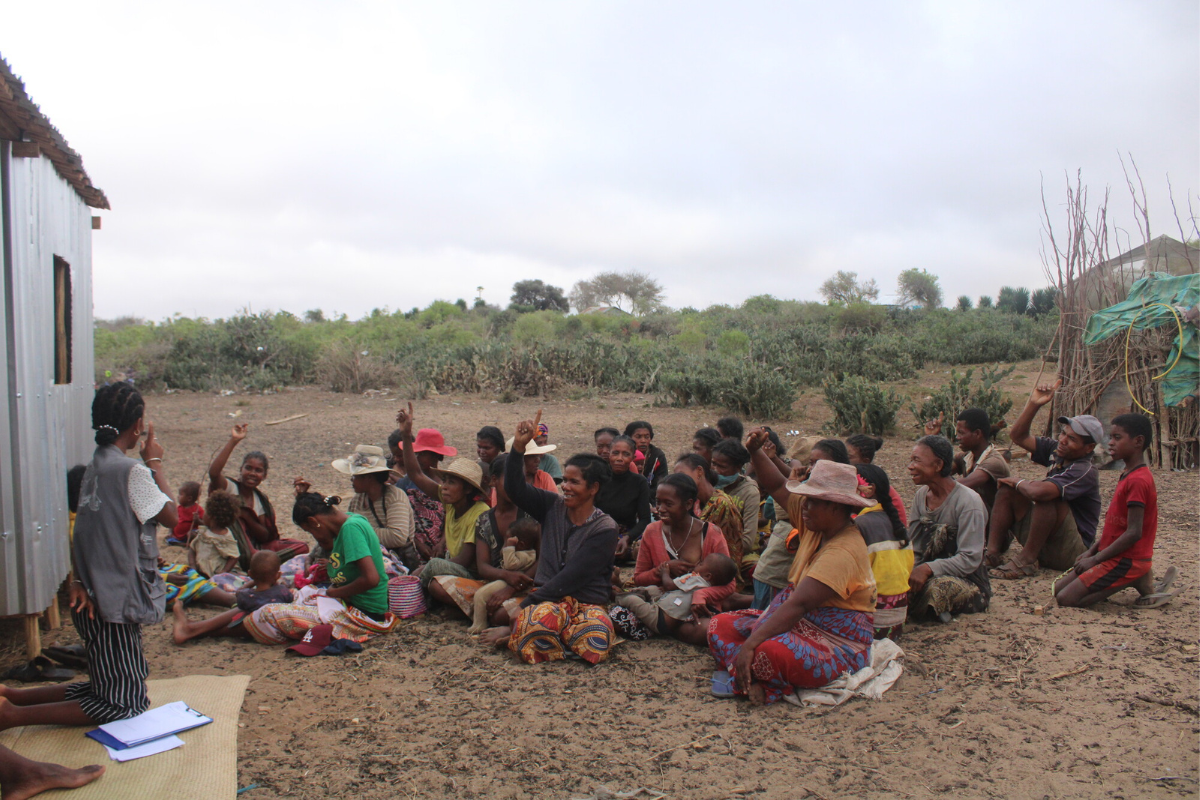
From each of the villages, a committee composed of two female and two male representatives was chosen by the community. This ensured there was female leadership in the decision-making processes. Along with helping to choose the most vulnerable households, this committee helped organize the distributions. No easy job!
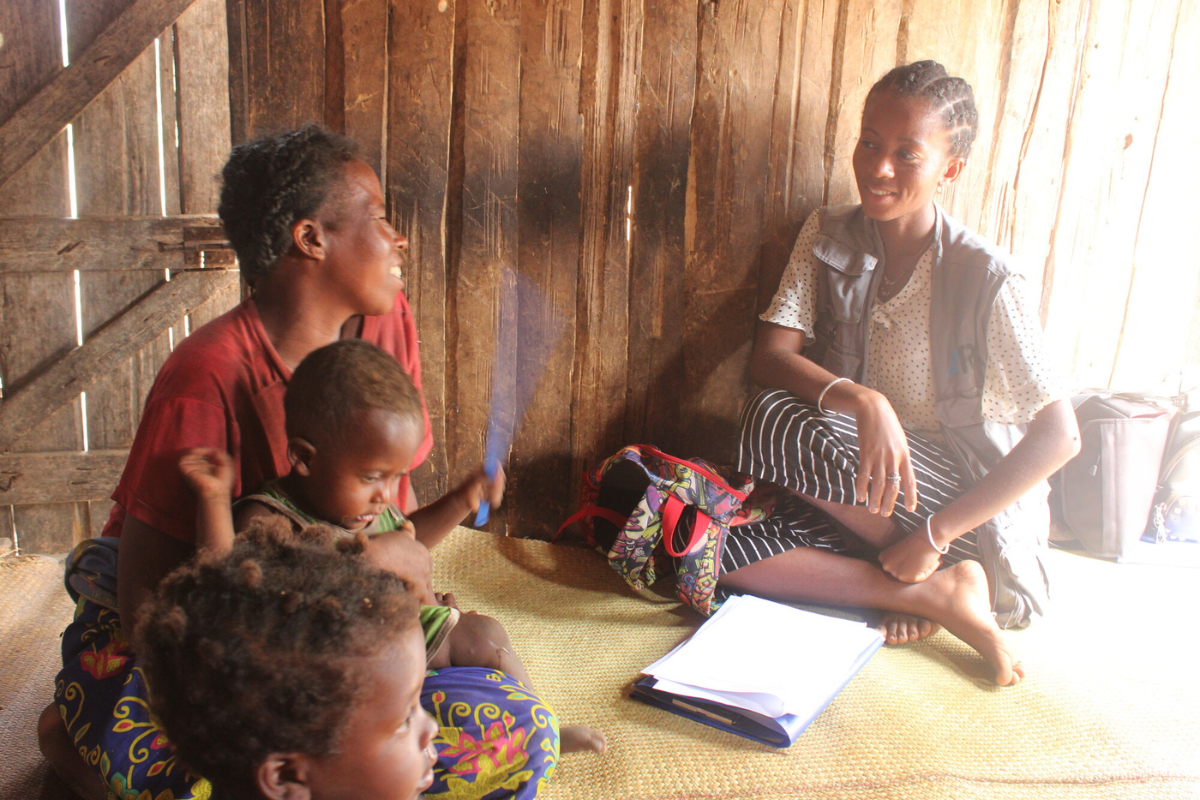
Each household received an in-house visit to obtain a detailed profile of the family. From this, the 2,000 most vulnerable families were selected. The selection criteria stipulated that a household cannot have any current source of income, may not own any livestock, and is eating only one meal or less per day. Priority was given to households that are female-headed with children, supervised by a widow or widower, hosting orphans, or include vulnerable children, disabled persons, or elders.
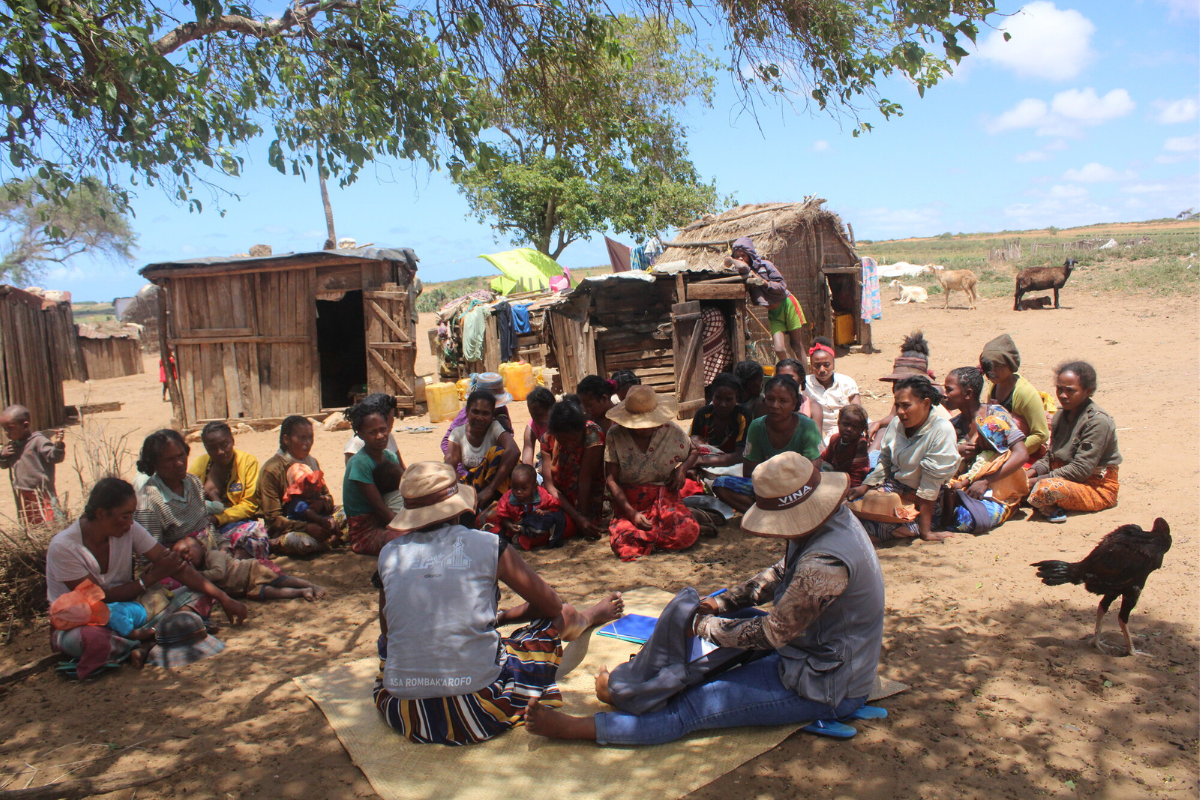
For full transparency, the final list of participants was shared with the entire community and there was opportunity to challenge the selection.
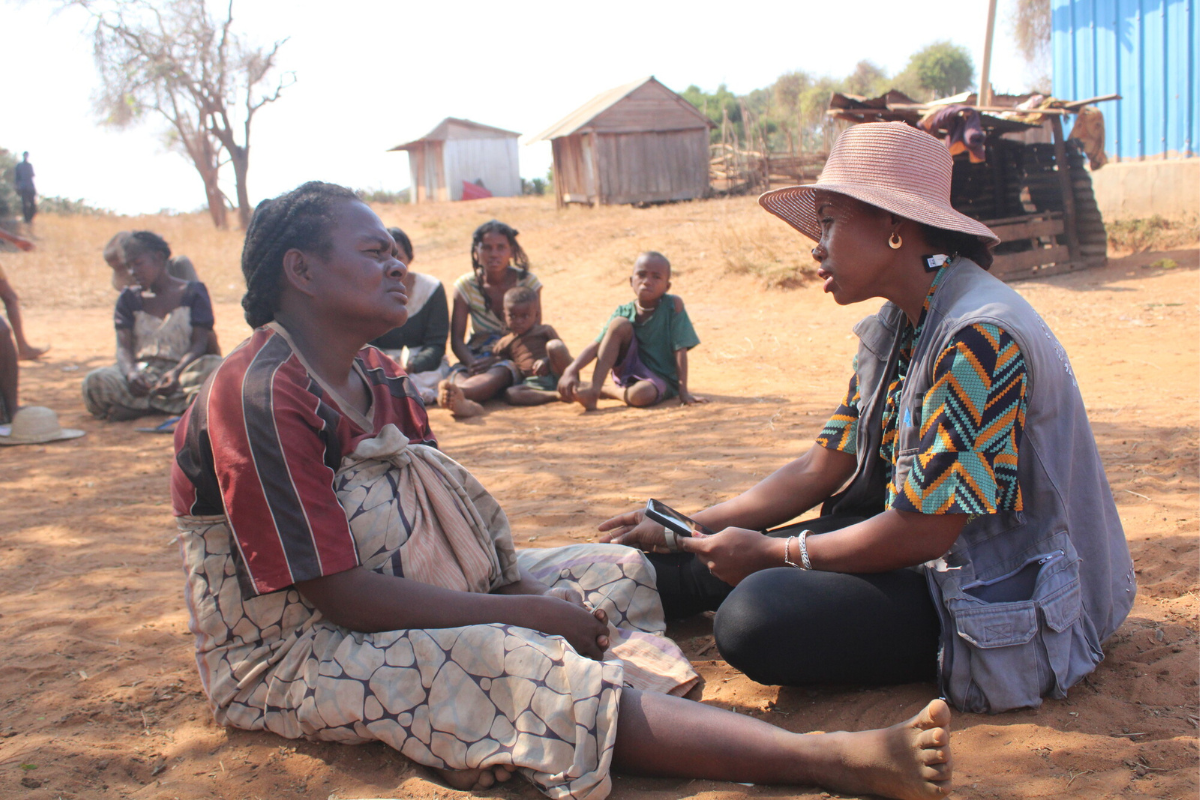
A one-on-one baseline survey of 12% of the households was completed prior to the first food distribution to determine what type and amount of food that they were consuming, as well as what types of activities and behaviours they had adopted to cope with the lack of food. Another survey will be conducted towards the end of the project to determine the impact of the project interventions.
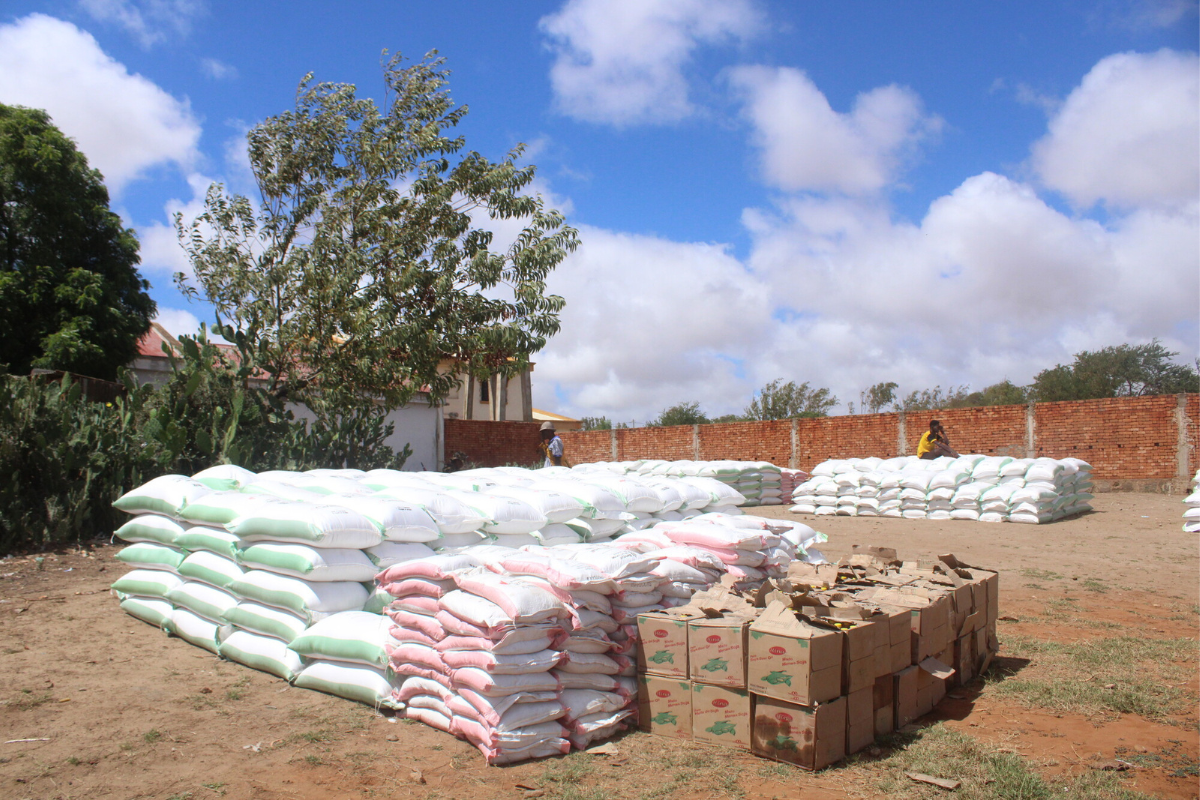
How would you organize the distribution of 120 metric tons of rice, 20 metric tons of beans, and 8,000 litres of oil to 2,000 families over a two-day period in a secure and organized way? This partner has it down to a perfect system! Once started, each of the two distributions takes only three hours to complete!
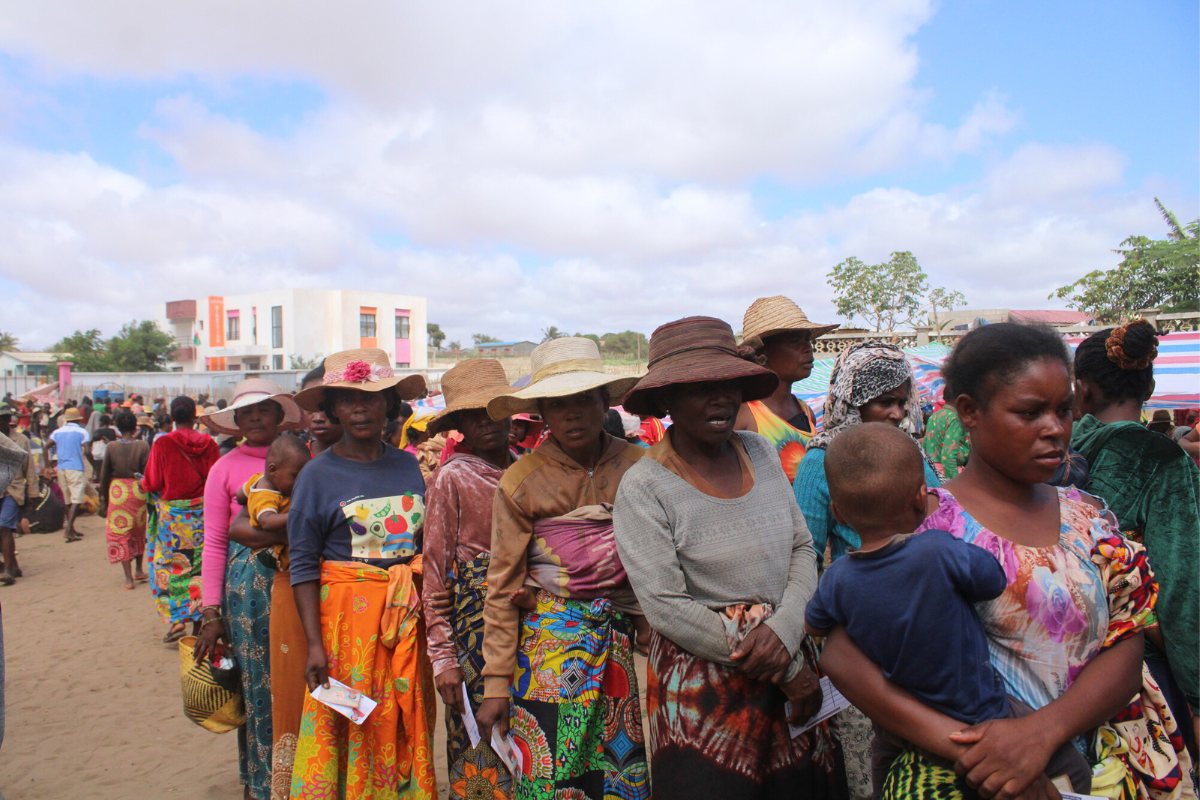
The distributions are well managed, providing a safe and enjoyable experience for the recipients. The household representatives are separated into groups of 10 with the understanding that pregnant women, elders, or disabled perons will be attended to first. Areas are roped off to keep good order.
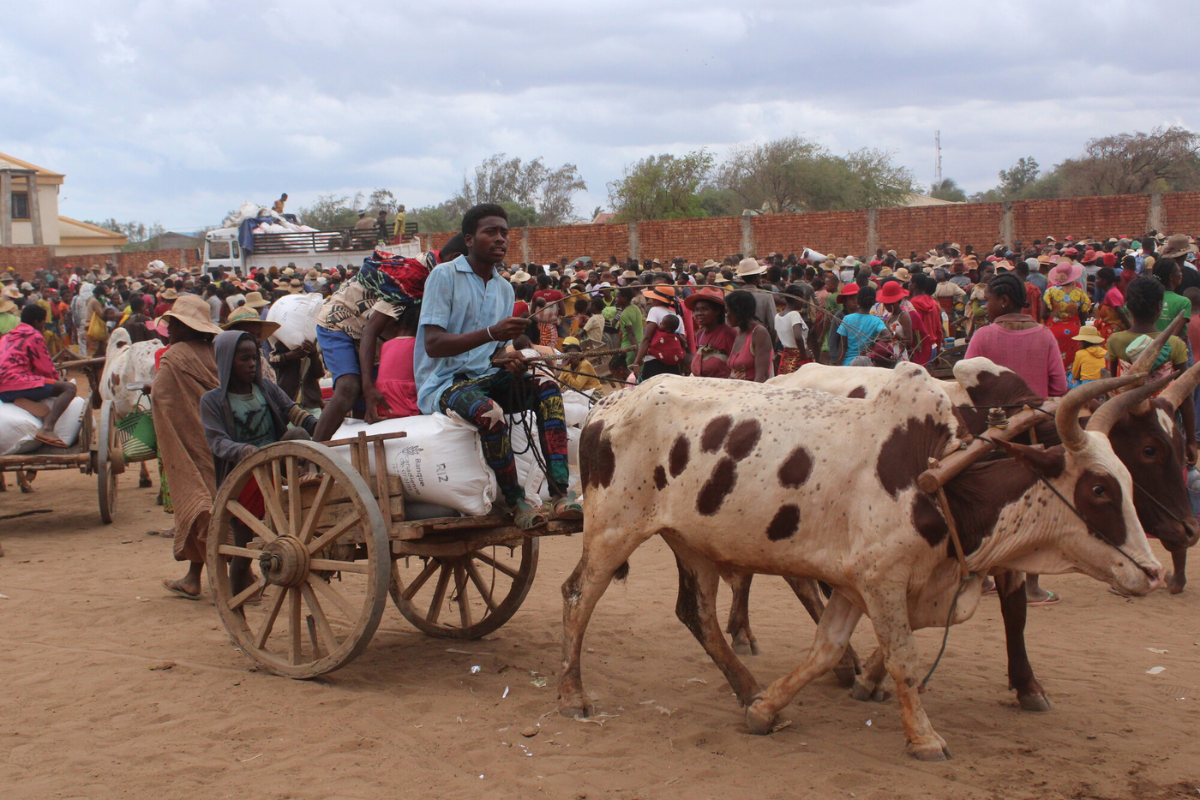
Extended family members help to carry their food to a “zebu taxi” (ox-driven cart) that they have hired. People are encouraged to travel in groups for safety and to share the cost of transporting the supplies.
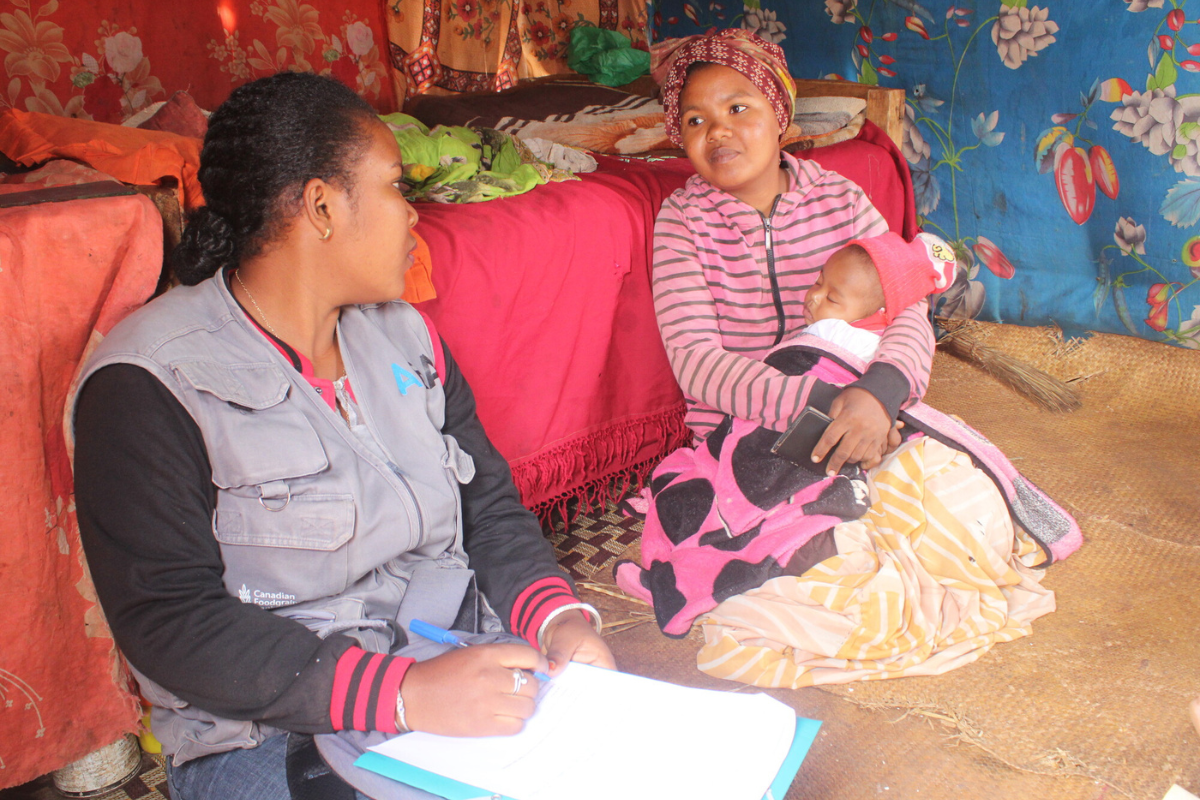
To ensure family well-being, there is ongoing monitoring throughout the entire project to determine how the food is being used and the impact it is having on the family. At the same time, the Community Mobilizers monitor how well the various trainings are being applied.
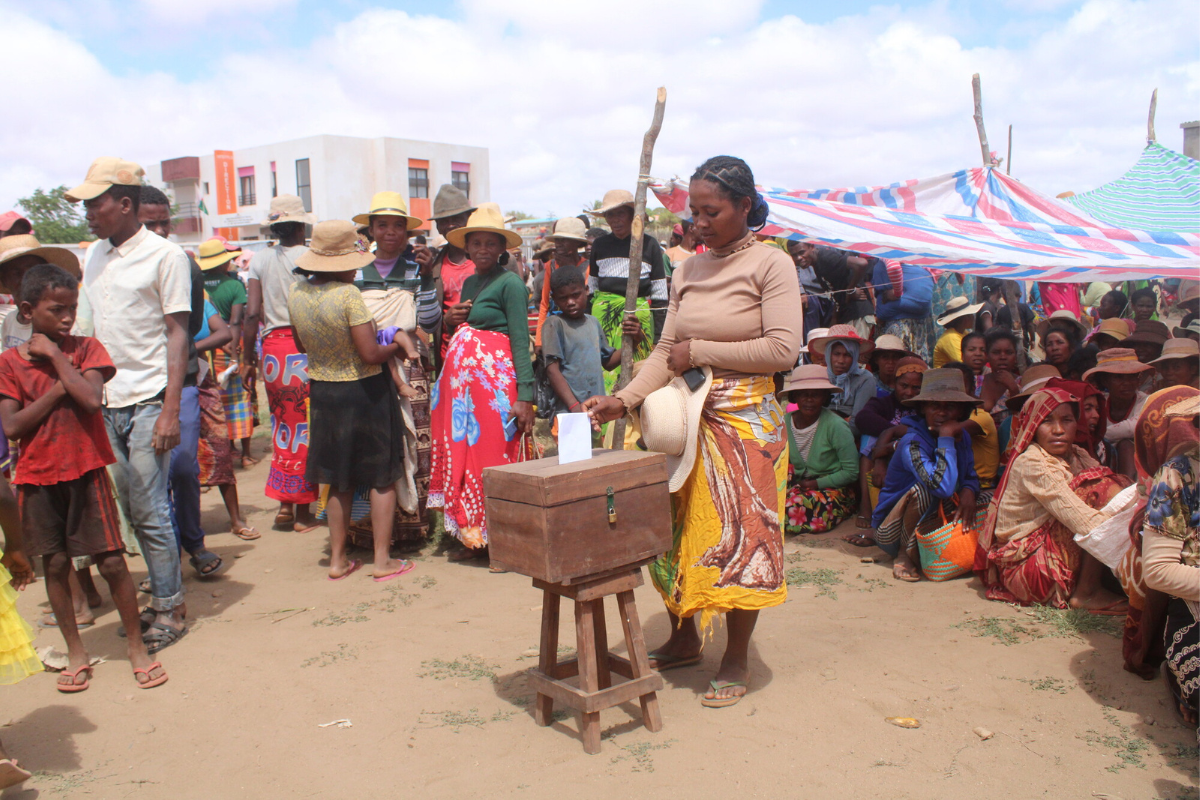
A complaint box is always available for participants to submit complaints or suggestions about any aspect of the project. Alternatively, they can speak to a staff person or leave a phone message on a “complaint line.” Each of these is thoroughly investigated and, where appropriate, corrective action is taken.
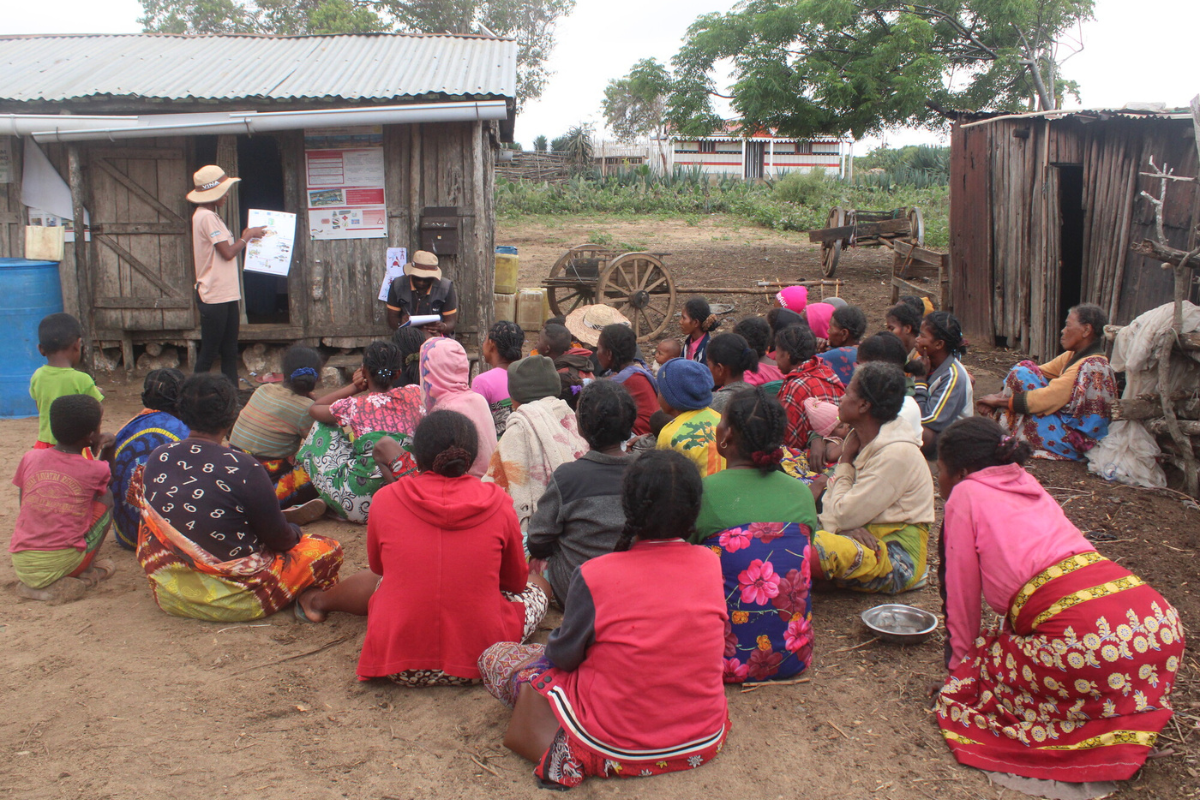
In addition to managing the monthly food distributions, community mobilizers visit each community several times each week to teach or reinforce awareness-raising activities. These include topics on gender equality, prevention of violence and abuse, fighting corruption, environmental issues, tree planting, nutrition, and Village Savings and Loans Associations.
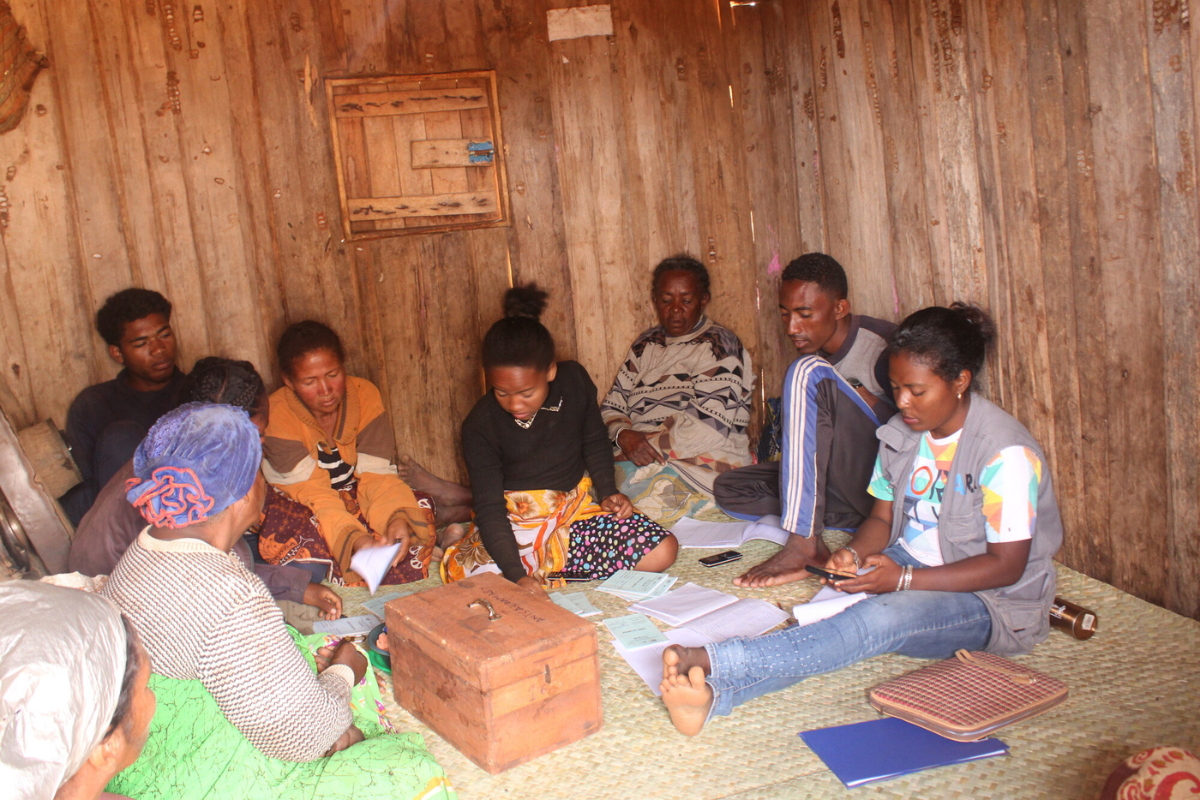
VSLAs (Village Savings and Loan Associations) were established during the previous project, with great participation and appreciation. We heard individual stories of how using loans from the VSLA helped families to establish livelihoods to supplement their incomes when crops were disappointing. In this region, there are currently 53 VSLAs in operation with a total membership of 1,305!
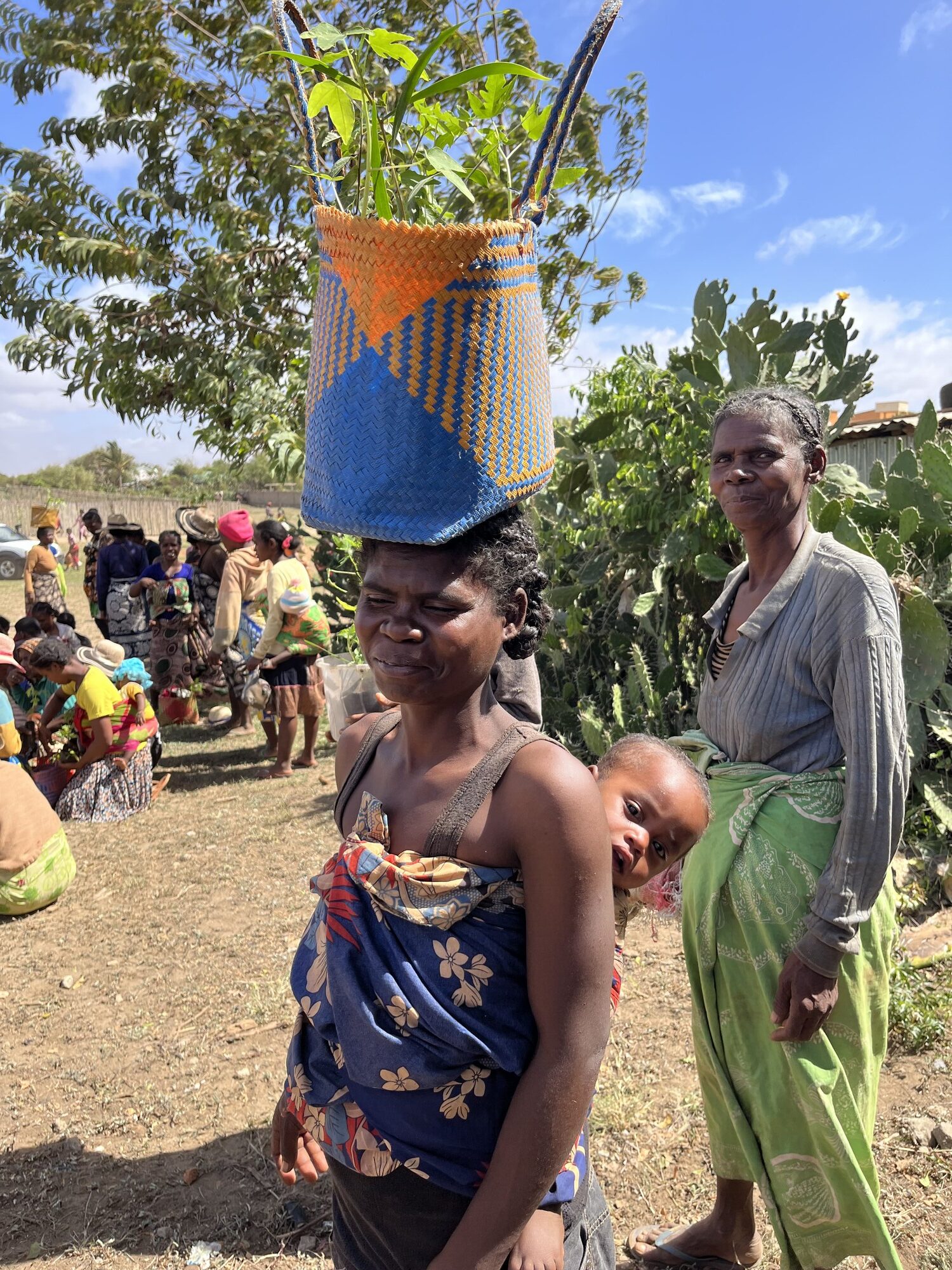
A tree seedling distribution took place in February 2024 with 6,000 tree seedlings being distributed to the 2,000 households. They were carried home in small buckets, handbags, and even hats!
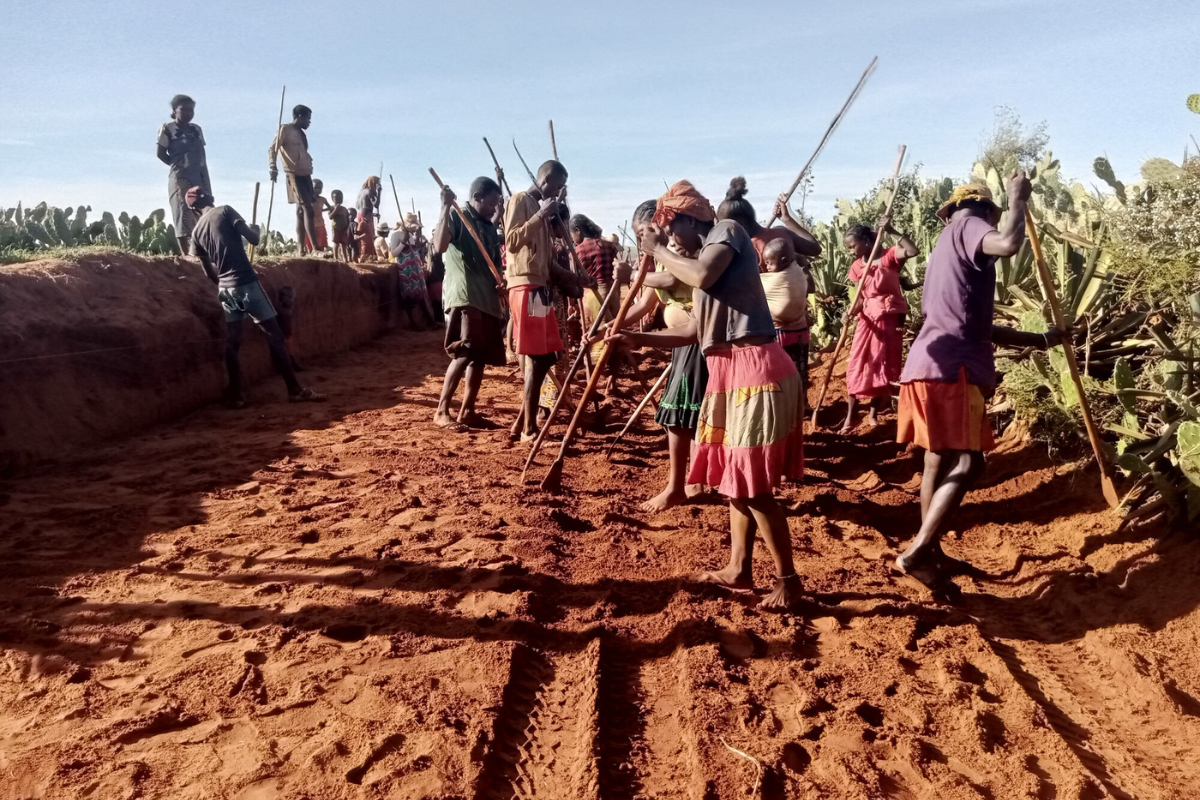
Concerned with people becoming dependent on humanitarian aid, the local authorities encourage the project beneficiaries to engage in community work for 10 hours per week. One of the jobs was to improve access to their village.
We leave feeling humbled and very grateful to God that we could serve him in such a unique way. We have once again had the privilege of being immersed in this culture. Our eyes have been opened to see the uniqueness of the people’s lifestyle, their resiliency, their emphasis on relationships, and their thankfulness in all circumstances.
We are sad to say goodbye to the wonderful and very competent partner staff we have been working with, headed by Cathia. The SAF/FJKM team is incredibly conscientious in their work and have been so warm and friendly.
As we leave behind these people we have come to care about, we ask that you pray for a blessing on their lives and the work that remains to be done to complete the project. Please also ask God to send sufficient rain to produce the harvest that will be desperately needed in this area after the project ends.
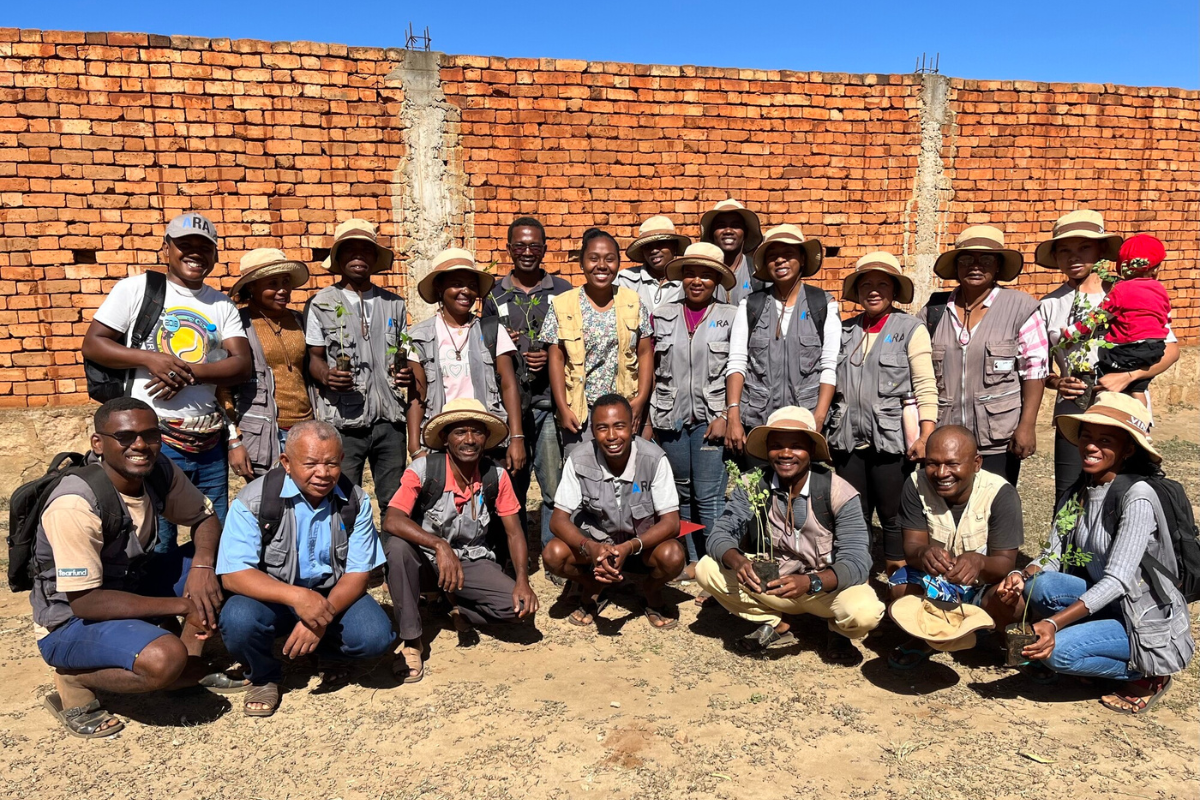
Harry and Annie Bergshoeff are International Relief Managers with World Renew. They recently spent time in Ambovombe, Madagascar, to help manage a food distribution project involving 2,000 of the most vulnerable households in 31 different communities. It aimed to provide each family a monthly ration of 60 kg of rice, 10 kg of beans, and 4 litres of oil for a period of 5 months to bridge the gap to their next harvest. Harry and Annie have contributed the following photos and captions to share the story of the work being done by World Renew with Canadian Foodgrains Bank and our local partner on the ground.

The project started with partner staff visiting each of the villages to share the details of the project and how the participant families would be selected.

From each of the villages, a committee composed of two female and two male representatives was chosen by the community. This ensured there was female leadership in the decision-making processes. Along with helping to choose the most vulnerable households, this committee helped organize the distributions. No easy job!

Each household received an in-house visit to obtain a detailed profile of the family. From this, the 2,000 most vulnerable families were selected. The selection criteria stipulated that a household cannot have any current source of income, may not own any livestock, and is eating only one meal or less per day. Priority was given to households that are female-headed with children, supervised by a widow or widower, hosting orphans, or include vulnerable children, disabled persons, or elders.

For full transparency, the final list of participants was shared with the entire community and there was opportunity to challenge the selection.

A one-on-one baseline survey of 12% of the households was completed prior to the first food distribution to determine what type and amount of food that they were consuming, as well as what types of activities and behaviours they had adopted to cope with the lack of food. Another survey will be conducted towards the end of the project to determine the impact of the project interventions.

How would you organize the distribution of 120 metric tons of rice, 20 metric tons of beans, and 8,000 litres of oil to 2,000 families over a two-day period in a secure and organized way? This partner has it down to a perfect system! Once started, each of the two distributions takes only three hours to complete!

The distributions are well managed, providing a safe and enjoyable experience for the recipients. The household representatives are separated into groups of 10 with the understanding that pregnant women, elders, or disabled perons will be attended to first. Areas are roped off to keep good order.

Extended family members help to carry their food to a “zebu taxi” (ox-driven cart) that they have hired. People are encouraged to travel in groups for safety and to share the cost of transporting the supplies.

To ensure family well-being, there is ongoing monitoring throughout the entire project to determine how the food is being used and the impact it is having on the family. At the same time, the Community Mobilizers monitor how well the various trainings are being applied.

A complaint box is always available for participants to submit complaints or suggestions about any aspect of the project. Alternatively, they can speak to a staff person or leave a phone message on a “complaint line.” Each of these is thoroughly investigated and, where appropriate, corrective action is taken.

In addition to managing the monthly food distributions, community mobilizers visit each community several times each week to teach or reinforce awareness-raising activities. These include topics on gender equality, prevention of violence and abuse, fighting corruption, environmental issues, tree planting, nutrition, and Village Savings and Loans Associations.

VSLAs (Village Savings and Loan Associations) were established during the previous project, with great participation and appreciation. We heard individual stories of how using loans from the VSLA helped families to establish livelihoods to supplement their incomes when crops were disappointing. In this region, there are currently 53 VSLAs in operation with a total membership of 1,305!

A tree seedling distribution took place in February 2024 with 6,000 tree seedlings being distributed to the 2,000 households. They were carried home in small buckets, handbags, and even hats!

Concerned with people becoming dependent on humanitarian aid, the local authorities encourage the project beneficiaries to engage in community work for 10 hours per week. One of the jobs was to improve access to their village.
We leave feeling humbled and very grateful to God that we could serve him in such a unique way. We have once again had the privilege of being immersed in this culture. Our eyes have been opened to see the uniqueness of the people’s lifestyle, their resiliency, their emphasis on relationships, and their thankfulness in all circumstances.
We are sad to say goodbye to the wonderful and very competent partner staff we have been working with, headed by Cathia. The SAF/FJKM team is incredibly conscientious in their work and have been so warm and friendly.
As we leave behind these people we have come to care about, we ask that you pray for a blessing on their lives and the work that remains to be done to complete the project. Please also ask God to send sufficient rain to produce the harvest that will be desperately needed in this area after the project ends.


